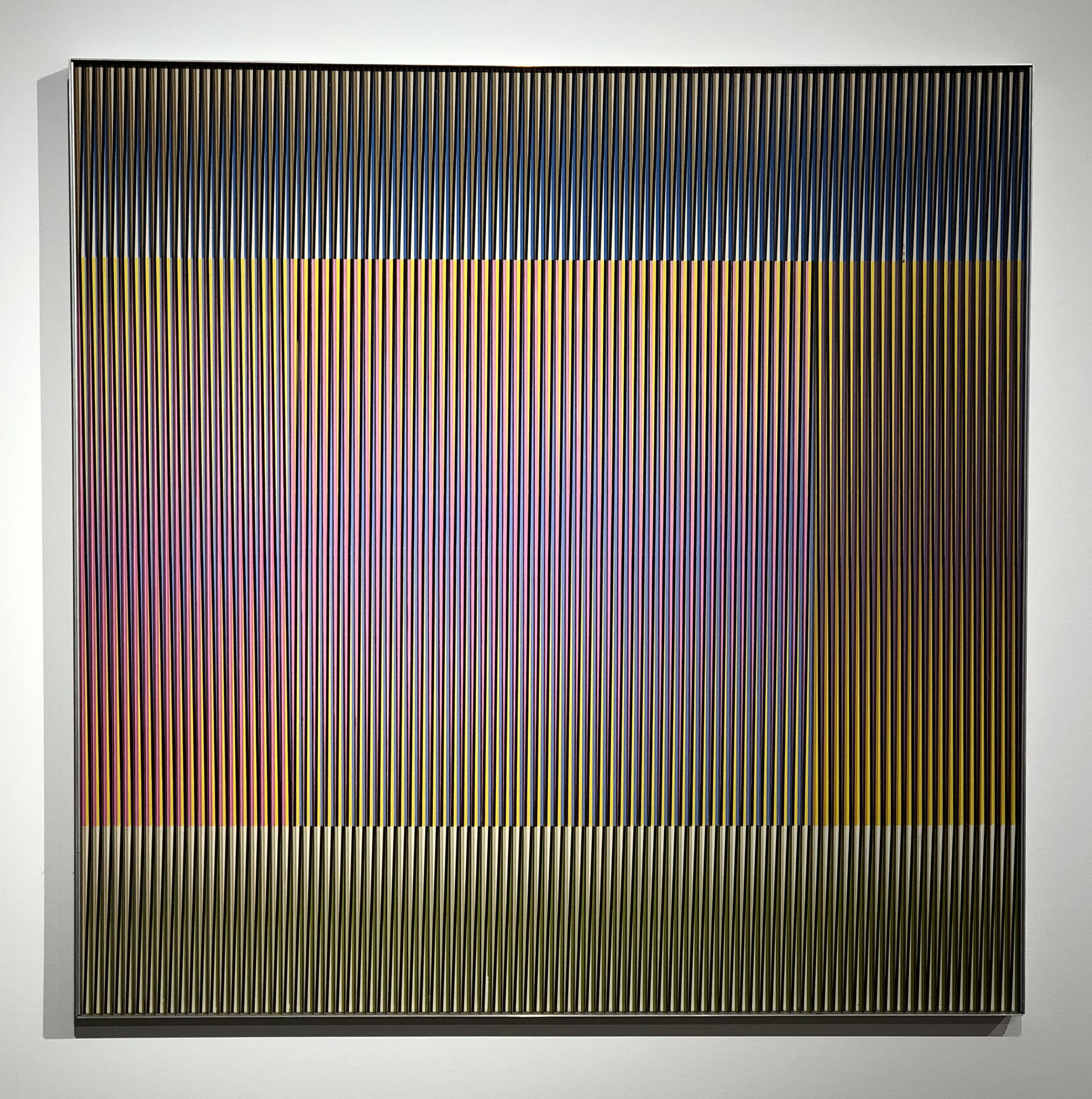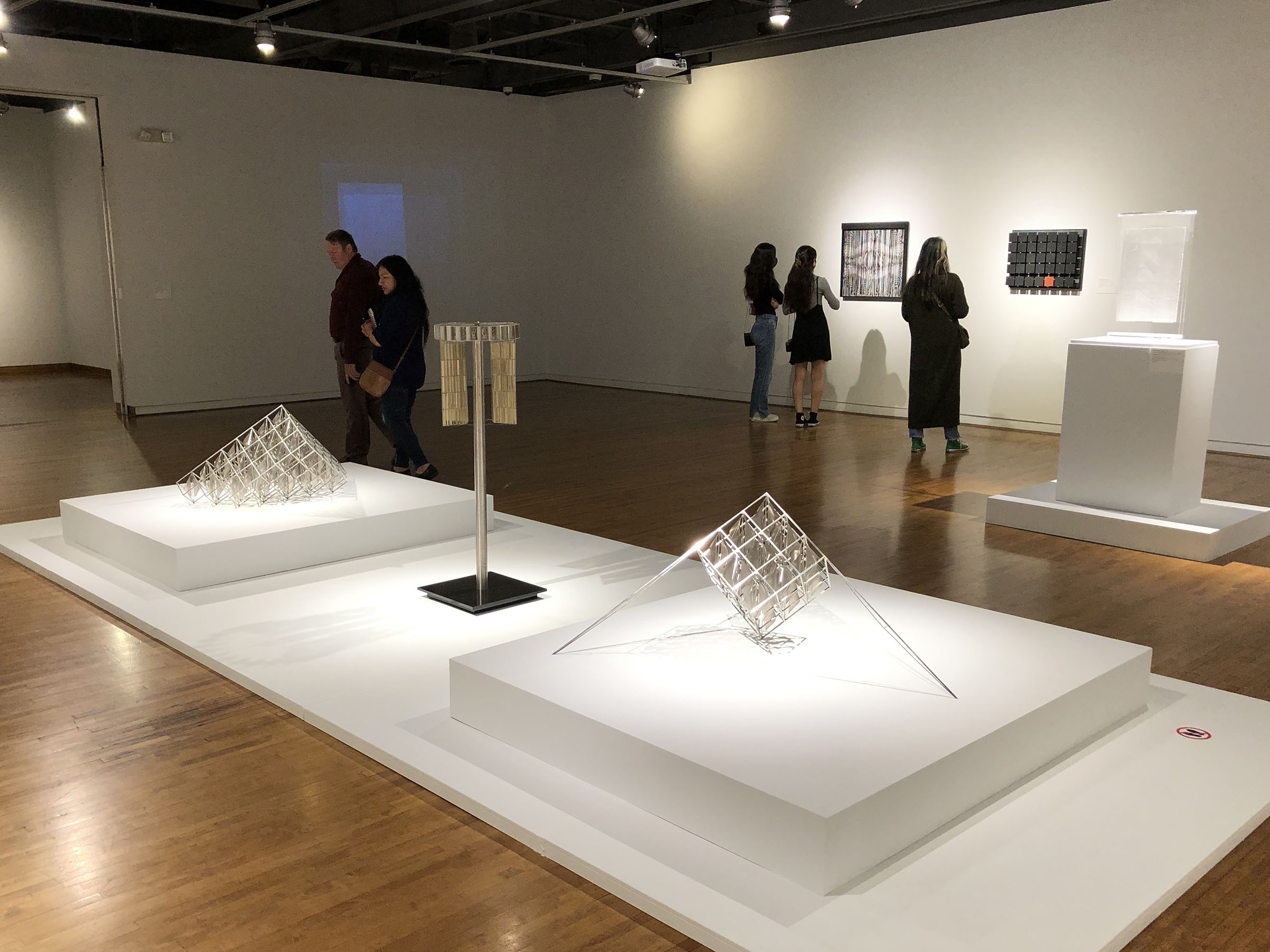 |
| Carlos Cruz-Diez, Physichromie no. 1.015, 1975. Duker Collection, Pasadena |
Hard-edge Latin American abstraction is experiencing a resurgence of interest among scholars and museums. It was not much to the taste of MOLAA founder Robert Gumbiner, but his foundation acquired some examples, and this holding has been augmented since his 2009 death. MOLAA is now surveying the field with a one-room exhibition, "Abstract Art Beyond the Frame." Largely drawn from the permanent collection, the selection is augmented by several key loans from the Duker Collection, Pasadena, and a group of works donated by the family trust of Argentinian artist, novelist, and playwright Jorge Albertella, who lives in Palos Verdes. The show brings together well-known mid-century figures and younger artists working in this idiom from Argentina, Colombia, Honduras, Uruguay, and Venezuela.
 |
| Installation view with sculptures by Alejandro Otero on the island |
 |
| Carmelo Arden Quin, Laby, 1950. Duker Collection, Pasadena |
The earliest object in the show is a hipster abstraction by the Uruguayan artist Carmelo Arden Quin, co-founder of the Grupo Madí movement in Buenos Aires. Quin was among the first to use shaped canvases.
LACMA bought an example in 2018, but the artist's work remains a rarity in U.S. museums.
 |
| Jesús Rafael Soto, Homage to the Human Being, 1971 |
 |
| Silvana Lacarra, untitled, 2003 |
A work by Argentinian artist Silvana Lacarro is made of Formica. Lacarro wrote of the countertop laminate: "This material was born as an economic simile of wood; the middle class adopted it not because of its imitative quality, but because of its claim to solidarity. Artistic work is the opposite of what is considered solid: It grasps without reaching its destination or, in the best of cases, simulates its arrival…"
 |
| Jorge Albertella, Ars Metallica 15a, 2006. Gift of the Albertella Family Trust |
 |
| Edgar Guzmanruiz, Cut, 2006 |







Comments
The majority of the artists in the Broad collection are US artists.
By contrast, a museum that's devoted (and themed) to American art/artists is pretty much a case of totally.
He's a huge fave.